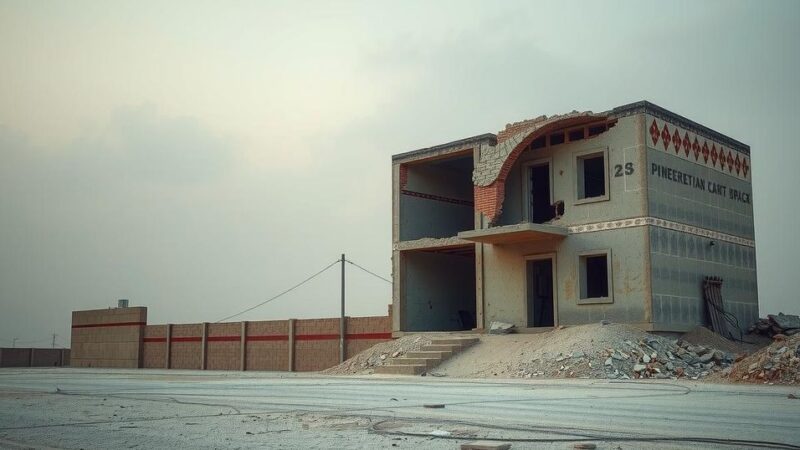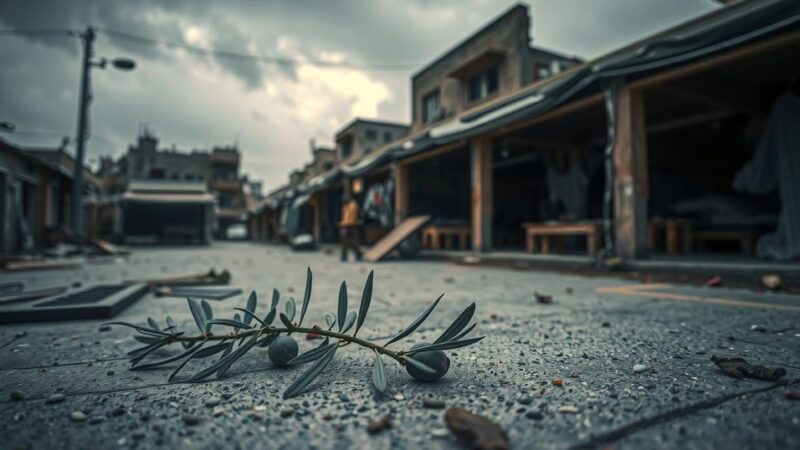African migrants seeking safety from conflicts in Ethiopia and Somalia find themselves embroiled in Yemen’s brutal civil war. The transition from one conflict zone to another highlights the complex realities faced by refugees. Although a UN-brokered truce offers hope, the escalating violence complicates their precarious situation, with increasing arrivals of migrants suggesting a continuous struggle against systemic disruption and danger.
African migrants fleeing persistent conflict in Ethiopia and Somalia have found themselves caught in the turmoil of Yemen’s ongoing war. Since 2014, after the Houthi movement seized control of the northern region, Yemen has been embroiled in a devastating Saudi-led air campaign that has reportedly claimed nearly 20,000 Yemeni lives and left countless others in precarious circumstances. Though a United Nations-brokered truce in 2022 offered a temporary respite, the situation for migrants remains dire, compounded by escalated violence amid regional conflicts.
Individuals like Mohamed Uthman Aden exemplify the plight of over 70,000 refugees presently trapped in Yemen. Having endured systemic violence and imprisonment in Ethiopia, Aden’s attempt to reunite with his family in Yemen exposed him to additional horrors. The hazardous journey across the Gulf of Aden, fraught with dangers such as capsizing and drowning, has led to the death or disappearance of nearly 1,860 people in the past decade, illustrating the dire risks refugees face.
Aden’s family eventually found shelter in Yemen, but the onset of the Saudi-led airstrikes turned their lives upside down. Despite seeking refuge, they soon encountered more violence, with Aden recounting harrowing experiences of airstrikes destroying their living quarters. Aden’s assertion that they now exist in a state of statelessness highlights the futility many refugees experience amid a conflict where they anticipated safety.
Raha Mohamud, a fellow refugee, shared her traumatic memories of the conflict in Ethiopia that prompted her perilous journey to Yemen. The escalating violence she faced, culminating in the loss of her mother and brother, led her to flee, making the treacherous crossing with hundreds of other people. Even after reaching Yemen, she found herself in another nightmare when airstrikes devastated her workplace, nearly costing her and her son’s lives.
Despite the considerable risks and horrors that these migrants endure, there has been a notable influx into Yemen. In 2023 alone, 90,000 migrants arrived, indicating the relentless push factors of war and climate change from the Horn of Africa. The frail ceasefire presents an uncertain tomorrow where new conflicts may arise, causing further suffering for refugees caught between two fronts.
Political analysts emphasize the dire need for refugee protections in Yemen, as many have found their earthly situation deteriorating despite fleeing violence. Should diplomatic efforts fail, the refugees will likely face a return to violence, reinforcing the perpetual cycle of displacement and suffering for many.
The plight of African migrants in Yemen has worsened significantly since the outbreak of the Yemeni Civil War in 2014, which followed the Houthi movement’s rapid rise to power. The ensuing Saudi-led military intervention exacerbated an already critical humanitarian crisis. Yemen has become a dangerous destination for many fleeing violence and instability in neighboring countries, such as Ethiopian and Somali conflicts. The existing ceasefire remains fragile, leaving migrants vulnerable amidst growing conflicts and changing geopolitical landscapes.
The ongoing struggles of African migrants in Yemen reveal a painful irony: after fleeing dire circumstances in their home countries, they face another layer of hardship in a war-torn Yemen. The frail ceasefire provides only temporary reprieve, as many remain in vulnerable situations, characterized by statelessness and uncertainty. Without adequate protections and a stable resolution to the conflict, the future remains bleak for these refugees trapped in a cycle of violence and displacement.
Original Source: foreignpolicy.com






